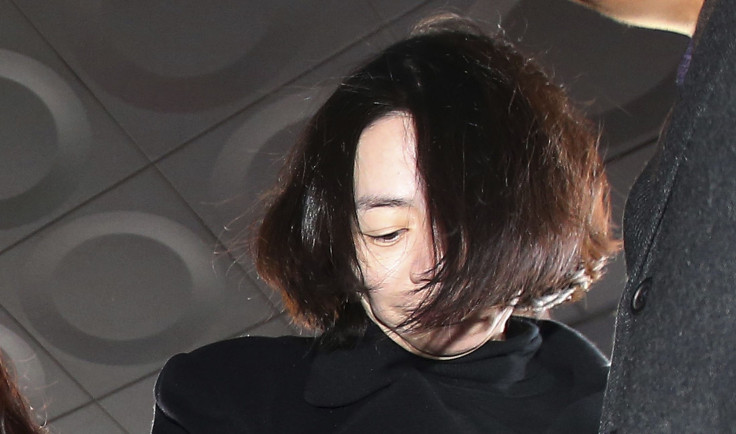Korean Air 'Nut Rage' Executive Convicted Of Violating Aviation Safety Law, Gets One-Year Prison Term

A Korean Air executive who sparked international controversy after she forced a plane to return to the gate over the manner in which nuts were served to her was convicted of violating aviation safety law by a court in Seoul on Thursday.
Cho Hyun-ah, also known as Heather Cho, is the daughter of the airline's chairman and CEO, Cho Yang-ho. She was convicted of forcing a flight to change its route, the most serious of the charges she faced, The Associated Press reported. Cho, who until the Dec. 5 incident had been the airline's senior vice president in charge of cabin service, had denied the charges against her. She was sentenced to one year in prison.
"This is a case where human dignity was trampled upon," Judge Oh Sung-woo said, according to Reuters.
Cho reportedly caused a plane -- scheduled to depart from New York's John F. Kennedy airport for Incheon, Korea -- to return to the terminal, after she took issue with a steward who served her macadamia nuts in a bag, instead of on a plate as required by company policy.
After the incident, which came to be dubbed as “nut rage” by the international press, allegations surfaced that airline executives had attempted to force flight crew members to lie about the incident, and that Cho had treated staff like “feudal slaves,” forcing them to grovel in apology.
At least four South Korean government officials were found guilty of improper conduct and face an unspecified punishment after an investigation found that they attempted to assist Korean Air executives in covering up the incident.
The flight attendant at the center of the incident told the court that she had initially lied about the incident under pressure from her powerful employers. “You can’t imagine how powerful she [Cho] is. She’s not just an executive of our company but also the daughter of Korean Air’s chairman. If she says we’re wrong, we must apologize no matter what,” Kim Do-hee said in a court hearing, according to The Wall Street Journal.
The incident took on wider significance in South Korea as citizens railed against what they saw as imperious behavior from the daughter of one of the family-run “chaebol,” or conglomerates, that dominate the country's economy. The chaebol originated after the Korean War, when South Korea’s government picked companies to take the lead in industries it thought could thrive internationally. Such companies were guaranteed financing and protected from competition to help them grow and pull the nation out of poverty, the Journal reports.
Prosecutors in the case have sought a three-year prison term for Cho, Reuters reported. A three-judge panel is expected to issue its sentence soon.
© Copyright IBTimes 2024. All rights reserved.






















